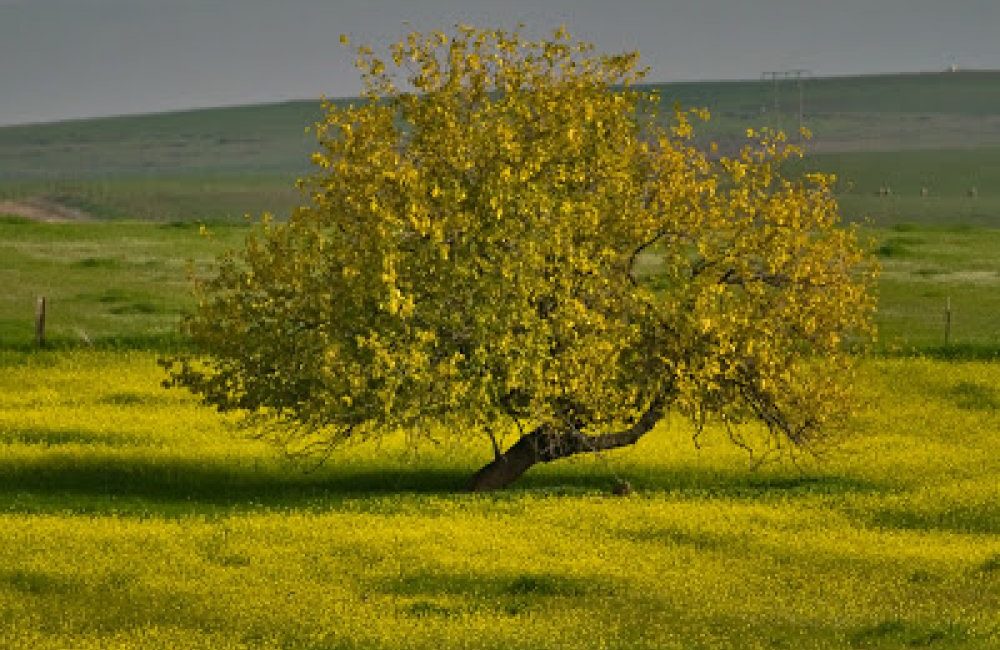Cycle A | ORDINARY TIME | WEEK 16
REFLECTION
– By Fr Ugo Ikwuka
Archway, London
A drunkard in an Igbo village of south-eastern Nigeria took the phrasal name _Chukwu ma onye uka_ which translates as “Only God knows the true Christian.” In this Sunday’s Gospel, Jesus compared the Kingdom of God to a farmer who sowed good seed in his field while his enemy came at night and sowed toxic darnel seeds among the wheat. When both sprouted, the servants reported to the farmer, and asked if they could weed out the darnels. But the Master stopped them because, since both are identical in appearance, the wheat might be mistakenly uprooted in the process. They should be allowed to grow together until the harvest time when the difference will be clear. Then, the wheat will be gathered into the barn while the darnel is tied up and burnt.
The spiritual reality illustrated here is the congregation of the faithful. As the drunkard insightfully reflects, it is often impossible to know for a certainty the genuine Christian since we can usually judge only by appearances. Indeed, motive, which is not usually apparent, is the only thing that distinguishes the genuine Christian from the hypocrite otherwise both have the same public appearance in everything just as the weed and the wheat are outwardly indistinguishable.
In Jesus’ day, the Scribes and Pharisees seemed to be the most religious of all, yet he rejected them for lack of interior conversion. Jesus had cautioned elsewhere: “Beware of false prophets who come to you in sheep’s clothing, but inwardly they are ravenous wolves. By their fruits you will know them, for grapes are not gathered from thorn bushes nor are figs gathered from thistles…” (Matt. 7:16). The wise farmer had heeded this counsel as he left things for the opportune moment, the day of reckoning.
Meanwhile, the self-restraint of the servants in suspending action on weeding the farm until they referred to their Master is decisive in the eventual successful outcome. Over-zealous servants, with tendency to rush to conclusions, would have assumed to know the difference between the wheat and the weeds, and would have gone ahead to uproot the ‘weeds’ only to end up injuring or uprooting the wheat in the process. We all have our ideas of who the good and the bad guys are. In their zeal to serve God, many Christians have gone on crusade against those they perceive as evil.
Paul, as the Jewish zealot Saul, zealously persecuted Christians, fully convinced that he was doing God’s will. Fanatics and fundamentalists result from this haste to get rid of perceived evil people. There is always the danger that presumed sense of godliness goes with air of superiority. We Christians, simply as Christians, can feel superior to people of other religions or none. Catholics can look down on Protestants and Pentecostals and vice versa.
Even within denominations like Catholic, members of certain sodality groups can see themselves as superior to ‘ordinary’ Catholics who ‘only’ go to Mass on Sundays. And the Sunday Mass-goers in turn see themselves as better than those who only appear at Easter and Christmas. In general, we the ‘godly’ people feel ahead of the ‘thugs’ in our society. In self-righteousness we set ourselves up as judges of others.
Moreover, the conversion of our societies into communities of God’s Kingdom – a world inspired by love of God and love of neighbour as opposed to a dysfunctional world of self interest, rivalry, violence and fear, is a very gradual process. It calls for a great measure of tolerance, patience and understanding in seeing it become a reality. A common reaction when things don’t go as planned in our lives is to quickly make changes without fully considering the consequences.

We are growing increasingly impatient. We like fast food, online banking, e-mails and texts. Conventional letter writing is now history. The patience to wait for the right moment to speak or act is not always easy. Waiting for God to answer our prayer can be frustrating. Yet, the answer to prayers involves our slowly uniting our prayers with the will of God. With patience we can walk the road of conversion, and progress in the spiritual life.
St Augustine notes that ours is the “Church of saints and sinners” in which there is room to grow and to be converted. The “evildoers” he said, “exist in this way either so that they will be converted, or because through them the good exercise patience.” Hence the scandals that shake the Church every now and then should sadden, but not surprise us. To Luther, who rebuked Erasmus of Rotterdam for staying in the Catholic Church notwithstanding her corruption, the latter responded: “I support this Church in the hope that she will become better, because she is also constrained to bear with me in the hope that I will become better.”
As Jesus noted elsewhere, it is not the healthy who need the physician but the sick, the sinners – you and me. There are elements of the Kingdom (wheat) and elements that are deeply opposed to it (weed) in each of us which should render us less ready to point the finger. Paul recognised that struggle within himself, and God assured him that His power also works through (human) weakness (Romans 7:21-25). Thus, we also need to learn how to be tolerant with our own weaknesses.

The farmer recognised that the weeds might inconvenience the wheat but only temporarily. They would not choke them to death. Indeed, some goods are achieved only with the experience of certain types of evil; no enduring success goes without some discomfort. To gain education a child must face the ‘cruelty’ of leaving home. To pass exams the student must face the ‘torture’ of burning the midnight oil. To excel in sports the athlete must face the ‘brutality’ of exhausting drills.
In all these, maturity, experience and ultimately joy will simply not be possible if those weeds of suffering are removed. People who struggled against chronic disease for many years are seen to eventually grow in the virtues of patience, courage and empathy. It was with the wickedness of Hitler and the Nazis that such heroes of virtue like St. Maximilian Kolbe emerged.
Yes, we may feel that such heroism does not justify the evils but as St. Thomas Aquinas noted, without the cruelty of the tyrant, we would not have the patience of the saints. The science genius Albert Einstein said, “I am thankful to all those who said NO to me. It’s because of them that I did it myself.” Like over-zealous servants, if in our zeal to eliminate suffering we succeed in prevailing on God to pull out all the weeds of human experiences, we would have eliminated with them opportunities for growth and excellence.




